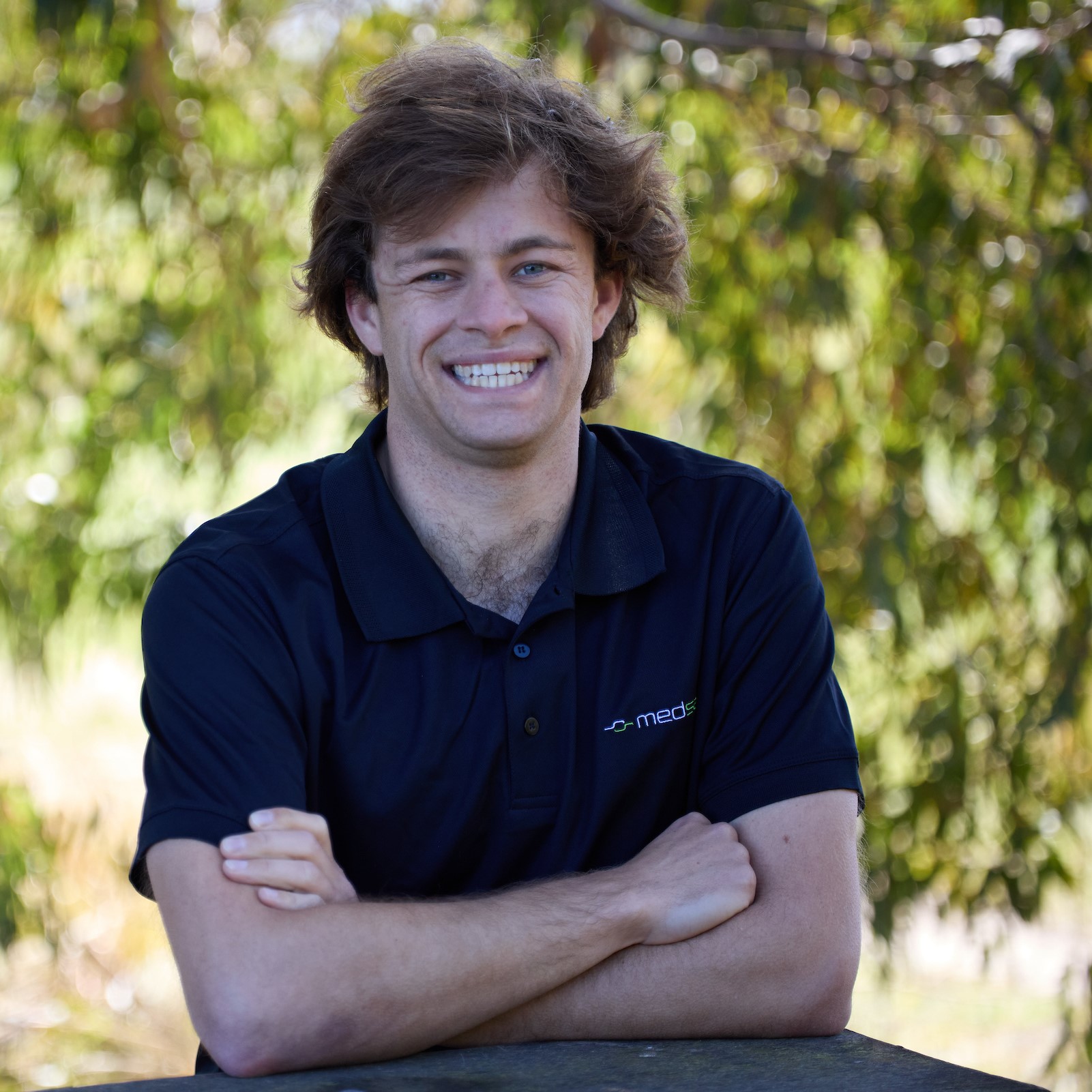Oliver Hunt
In 2017, 23-year-old Canterbury engineering student Oliver Hunt saw a problem, and threw everything he had at fixing it.
It was while hunting around for a research project for his Master of Engineering in Management that Oliver had a fortuitous conversation with an uncle about all the used single-use medical equipment and devices going to landfill.
“He said: Look, why don’t you find a way to re-sterilise them and re-supply them to hospitals. So I did.”
Oliver understood that this idea had the potential for significant environmental, financial, and social change – so he launched a business called Medsalv and got to work.
The result is more than 25 tonnes of single-use healthcare products diverted from landfills, millions in healthcare savings, and a trans-Tasman business which focuses on employing people who face barriers to employment.
Oliver, now 29, is a 2023 recipient of a BLAKE Leadership Award. The awards were established 20 years ago in honour of the late Sir Peter Blake and his leadership, pioneering spirit, and commitment to environmental advocacy.
Oliver’s nomination explains the impact of Medsalv.
“Over the past five years, Oliver has driven Medsalv to significantly impact the environmental, social, and financial sustainability of healthcare in Aotearoa. Medsalv has not only directly reduced cost and waste across Aotearoa but has done this in a way that creates jobs for people with barriers to employment.
“Medsalv is now working with 57 of the country’s 66 surgical hospitals from Whangarei to Invercargill and is establishing operations in Australia – recognising, like Sir Peter Blake with his international voyages for education, that the impact of environmental harm and particularly emissions is global.
“Oliver’s constant challenging of a highly wasteful status quo asks the world’s largest organisations how they can do better.”
Oliver is clearly driven by opportunity to change the famously bureaucratic healthcare sector. His persistent and consistent advocacy for sustainable practices has driven hospitals to improve and demonstrated the possibility to do so.
“The thing about healthcare is that while hospitals in New Zealand and across Australia are caring for people, they often aren’t caring for the planet,” Oliver says. “They create all this waste that goes into landfill and all the carbon emissions that go into making the products initially.”
“So, we help combat that by collecting those products, remanufacturing them, and then reusing them – reducing waste, reducing cost, and reducing carbon emissions, and allowing people to find employment where they otherwise might not be able to.”
Post-covid, business has been booming. Medsalv currently collects 1000kg of waste every week from its 57 partner hospitals in Aotearoa, and remanufactures it. Each medical device is now re-used up to 14 times, as opposed to ending up in landfill after one use.
Further determined to bring change, Medsalv’s Designed for Reuse initiative has developed a replacement for a common single-use medical product. Medsalv Products calls it the Reuse-a-slide. So far, that one product has replaced approximately 10,000 equivalent single-use products – 120 Reuse-A-Slides have replaced 1800 single use slides, so far.
Oliver says his greatest satisfaction as CEO of Medsalv comes from social sustainability initiatives.
Oliver’s focus here is ensuring that opportunities for employment are offered to those who most need them. 10 staff – or more than a third of his workforce – are people who faced barriers to employment. Through the hand up that employment at Medsalv gives, these kiwis with diverse abilities have improved their own circumstances and are contributing to a better, brighter, more sustainable Aoteoroa.
“We make a difference environmentally, we make a difference financially, but the social impact we’re driving through employing people who face barriers to employment is by far the most rewarding part of what we do.”
Oliver says he was inspired by a university class trip to Kilmarnock Enterprises; a Christchurch social enterprise which employs people with intellectual disabilities.
“So, when we were getting Medsalv up and running, I thought: why don’t we do the same thing. We do it because we are well-positioned to do it and because, as a society, we need to be more inclusive.”
Oliver hopes his business will inspire others. Already, he has helped laundry providers to support hospitals so they buy reusable isolation gowns, instead of single-use ones. Other initiatives are in the pipeline, as well as mentoring fellow environmental entrepreneurs with big dreams.
Oliver’s success is contingent on an ability to effectively influence and inspire people and their organisations to take steps to support sustainable healthcare. He has become adept at pitching to customers, partners, team members, and other stakeholders including other government agencies, ministries, and councils.
He is a board member of the Canterbury Employer’s Chamber of Commerce, an emerging leader on the Australia New Zealand Leadership Forum and a leadership group member on the Canterbury Health Innovation Network.
“The future for Medsalv is bright,” Oliver says. “We are making a positive change and I think we can inspire more organisations to do more.”
Oliver’s track record as a young but effective leader suggests he may yet make good on his sustainability ambitions beyond Oceania.
His nomination form for the BLAKE awards reads: “At 29, Oliver Hunt has already shown that he has the capacity and resilience to take a visionary idea and transform it into a successful reality within an industry notoriously resistant to change. His tenacity and innovative thinking have made him an agent of a sustainable transformation in healthcare, showcasing his potential to effect significant changes in other arenas as well.”
“His relentless pursuit of sustainability and societal betterment marks him as an influential leader capable of shaping a more sustainable future with a globally significant impact.”
Oliver confirms his goal is sustainable change on a global scale.
“The goal for Medsalv is to deliver sustainable healthcare everywhere healthcare is delivered.”


